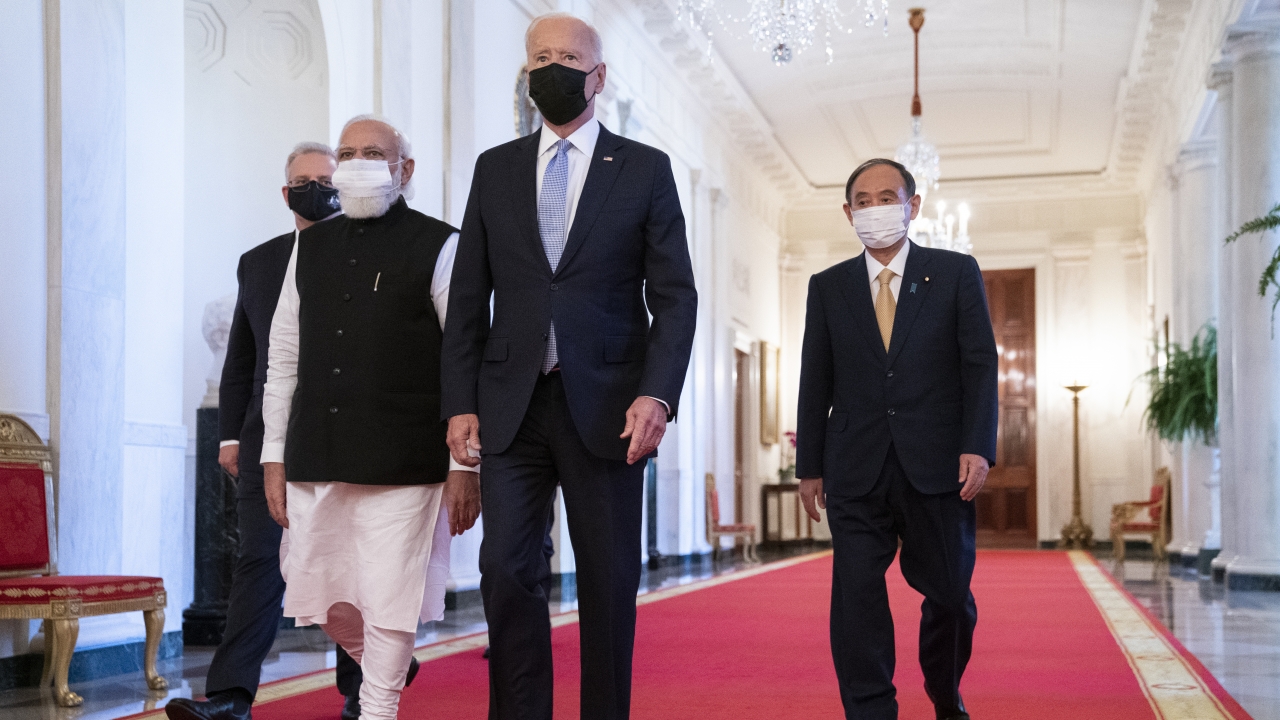Meeting with the leaders of India, Australia and Japan, President Joe Biden declared Friday that the U.S. and other members of the Indo-Pacific alliance known as “the Quad" are showing they “know how to get things done" in an increasingly complicated corner of the globe.
President Biden and his fellow leaders — Australian Prime Minister Scott Morrison, Indian Prime Minister Narendra Modi and Japanese Prime Minister Yoshihide Suga — are all grappling with a rising China that Biden has accused of coercive economic practices and unsettling military maneuvering.
They made no direct mention of China as they opened the group's first ever in-person meeting, but the Pacific power was sure to be a major focus as they headed into private talks.
On broader issues, President Biden has repeatedly made a case that the U.S. and like-minded allies need to deliver results on the COVID-19 pandemic, climate change and other fundamental matters with the world in what he's deemed a race between democracies and autocracies.
Morrison and the others seemed to pick up that message as they opened Friday's summit.
“We are liberal democracies, believe in a world order that favors freedom,” Morrison said. "And we believe in a free and open Indo-Pacific, because we know that’s what delivers a strong, stable and prosperous region.
Before the gathering on Friday afternoon, President Biden sat down with Modi in the Oval Office. He was also to have a one-on-one with Suga, who is soon to step down from his post.
At the afternoon summit, the Quad leaders were expected to announce a coronavirus vaccine initiative and plans to bolster semiconductor supply chains. President Biden announced the Quad had created a program to bring graduate students in science and technology to U.S. universities. After the summit, Morrison and Suga met with Vice President Kamala Harris for further talks; Modi met separately with Harris on Thursday.
The Quad is an informal alliance formed during the response to the 2004 Indian Ocean tsunami that killed some 230,000 people. President Biden has sought to reinvigorate the alliance, putting a spotlight on a chief foreign policy goal: greater attention to the Pacific and a rising China. The alliance met earlier this year, virtually, and announced plans to boost vaccination manufacturing in India.
The Japanese and Indian governments welcomed a recent announcement that the U.S., as part of a new alliance with Britain and Australia, would equip Australia with nuclear-powered submarines.
That will allow Australia to conduct longer patrols and give it an edge on the Chinese navy. But the announcement infuriated France, which accused the Biden administration of stabbing it in the back by squelching its own $66 billion deal to provide diesel-powered submarines.
Tensions between President Biden and French President Emmanuel Macron eased after the two leaders spoke Wednesday and agreed to take steps to coordinate more closely in the Indo-Pacific.
Michael Green, who served as senior director for Asia at the National Security Council during the George W. Bush administration, said Japan and India welcome the United States-United Kingdom-Australian alliance “because it will really for the next 50 years reset the trajectories in naval power in the Pacific and from the perspective of those countries stabilize things as China massively builds up its naval forces.”
But Chinese Foreign Ministry spokesperson Zhao Lijian has called it a reflection of “outdated Cold War, zero-sum mentality and narrow-minded geopolitical perception” that will intensify a regional arms race.
Additional reporting from the Associated Press.


